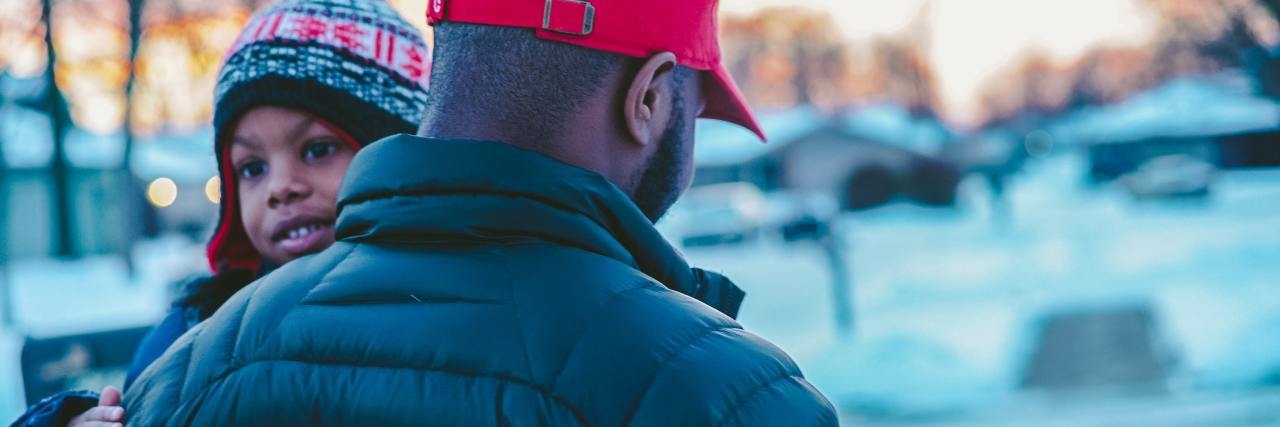I woke up to darkness. It was 4 a.m. and cold. I peeked out our bedroom window and saw more of the same, nothing. Our neighborhood’s Facebook page told me it was our turn for what was deemed “rolling blackouts.” My wife, up at this point from all my shuffling, suggested I put our food in a cooler and place it outside. We assumed the blackout wouldn’t last long since it was planned, but we were wrong. Later in the morning, we sat in the living room with our 2-year-old daughter, thinking our way through the situation. Our daughter, layered in clothing, had cold cheeks and hands. That was enough for us to spring into action. Fortunately, I was able to secure a hotel room for us — everywhere was booked solid. We packed, set a few faucets to a steady drip, and left.
The scene was bleak as the day crept on. Lines of hungry, freezing Texans stretched around the block of the shopping plazas, as they waited to enter grocery stores with dwindling supplies. Fast-food places were mostly shut down, but we grabbed a meal in time. We hopped back on the road to be met with unlit traffic lights. We held our breath at every major intersection, but thankfully, we made it safely to our hotel.
The next day, we came home to a warm and powered place but there was still the fear of, “Will our heat cut out in the middle of the night?”
“Are we doing the best to protect our child?”
“How much worse will this get?”
Anxiety is alive and well during times like this. Safety, shelter, food and water are all significant factors of mental illness. This, added to isolation and trying to protect your vulnerable loved ones, is a wear on the mind and body.
Basic needs matter. Put that on repeat. Shout it from the mountaintops because it seems as though state leadership doesn’t realize this. A trip to Cancun, avarice, resistance to change, privatized utilities management and what feels like zero empathy has left over 14 million Texans without access to clean water, heat or food. Consider the communities of color which already receive disproportionate access to mental and physical care, experience environmental racism, and live with inadequate housing options. Consider rural communities already struggling with access to health care in the wake of COVID-19. It’s all a recipe for prolonged suffering, anxiety and depression.
What’s helped are the stories of first responders kindly answering frantic calls regarding frostbite or pipes bursting, the neighbors offering blankets and food to anyone who can reach their door, and the calls and texts from our own friends and family. Just a “what do you need right now?” or a “how can we help?” helps calm the fear. I’ve been good about staying current on my meds, and I am looking forward to a much-needed therapy appointment.
For now, we’re taking this one breath at a time. We’re stocking up on water when possible and have secured a water filter. We’re keeping our heat low and working to be considerate of others. We’re waiting this thing out and leaning into moments of joy and peace. We dance, we rejoice, we pray, we vent and we do our best. It’s all necessary, and we’re trying to give ourselves space to do this all imperfectly.
Image via Chris Benson on Unsplash

